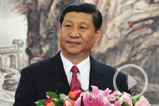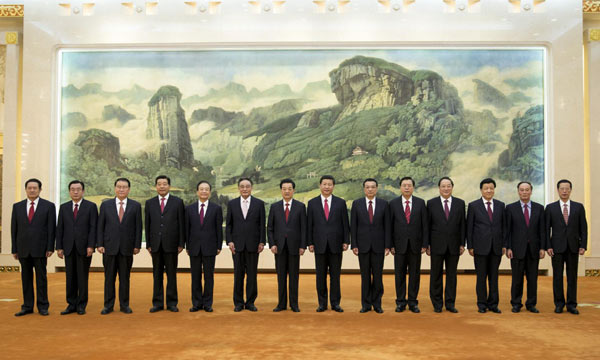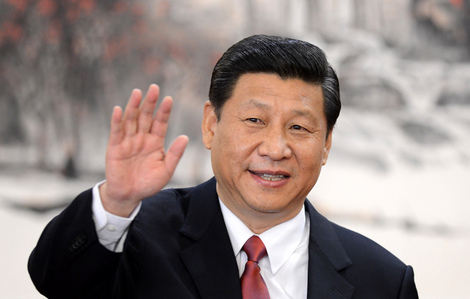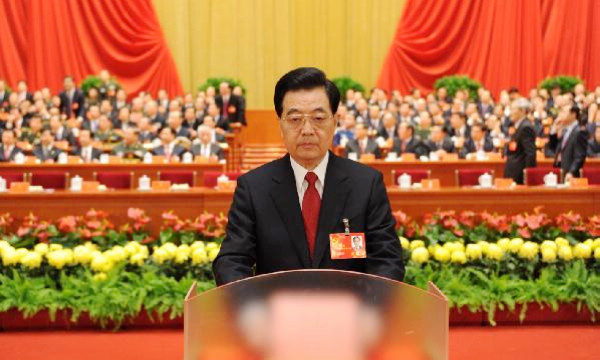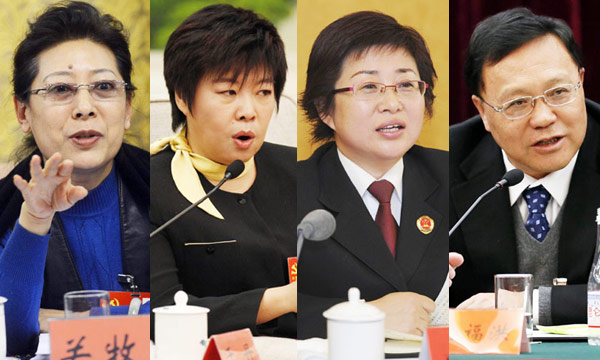Reporter's log: Thoughts on welcome questions from abroad
By Han Lei (China Daily)
Updated: 2012-11-15 08:04
My initial disappointment at not being given the chance to ask a question at a news conference on the sidelines of the 18th Party Congress on Sunday was soon forgotten.
It was good to see five of the eight opportunities to do so going to overseas journalists, which, as I see it, is a sign that Chinese officials are becoming more confident and comfortable in dealing with them.
 |
| Han Lei |
Yu had the chance to ask questions at two out of four news conferences planned for the congress, displaying excellent bilingual skills on both occasions - first raising the questions in Chinese and then in English.
Her case is just one example of the growing confidence among Party officials in facing up to the outside world, or to be more specific, in answering sharp questions.
To be frank, they still have much to learn from their Western counterparts, as the Chinese are not accustomed to impromptu public speeches.
But this is a welcome shift.
A total of 2,732 journalists registered for the congress, 1,704 of them coming from overseas media organizations, up from 1,133 five years ago at the 17th Party Congress, according to official figures.
During this year's congress, it was common to hear: "I want to give the opportunity (of asking the last question) to an overseas reporter." This even made me consider dyeing my hair a light color to look like a foreigner.
At a media session on the second day of the congress, Sun Zhengcai, Party secretary of Jilin province, interrupted a journalist from the province to give a reporter from Hong Kong-based Phoenix TV the chance to ask a question instead.
"You have many chances to ask questions back in Jilin. Please give the opportunity to overseas media," he told the reporter from Jilin Daily.
The same day, the Party chief of the Inner Mongolia autonomous region, Hu Chunhua, also impressed journalists with his open attitude toward reporters, especially those from abroad.
Hu gave all, apart from one, of the opportunities to ask questions to overseas reporters, the exception being China Daily.
But services for foreigners extended well beyond news conferences. An English-language website was set up to provide a wide range of information on the congress, as well as archives about the Party.
The media center offered free Internet services as well as piles of books in Chinese and other languages, featuring different aspects of the country from healthcare to green development, from food safety to law enforcement.
But my favorite service there was the free coffee, providing revitalization after long hours of work and insufficient sleep.
When I left the media center on Tuesday, I suddenly realized that I might be unable to return during this session which is held once every five years.
And I began to miss a week of intense work there, where I found a friendly atmosphere, comfort and convenience.
Oh, and plenty of news to report.
Contact the writer at hanlei@chinadaily.com.cn
Related Stories
Reporter's log: Preparing for changes ahead 2012-11-14 07:40
Reporter's log: A shared honor to witness history 2012-11-13 08:13
Reporter's log: Intrepid reporters sniff out a scoop 2012-11-12 13:14
Reporter's log: Buzz of becoming 'mini-spokeswoman' 2012-11-09 07:57
Reporter's log: asking question on the scene 2012-11-08 07:42
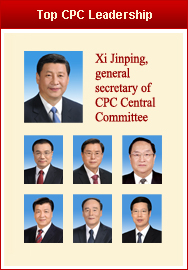
Top News
Xi emphasizes adherence to CPC Congress spirit
Top legislator urges implementation of congress spirit
Moderately prosperous China brings chances to world
Video
